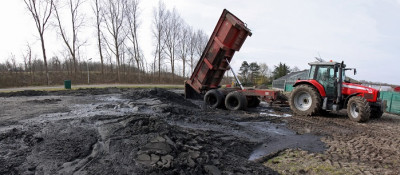Sediment analysis
Mar 20, 2023
Sediment analysis is a valuable tool for assessing the impact of human activity on the aquatic environment, as it can provide a long-term record of environmental conditions and help to identify trends over time.
The results of different studies confirm the effectiveness of pollution control legislation in reducing the levels of toxic contaminants in the aquatic environment. It also highlights the importance of continued monitoring and enforcement of these regulations to ensure the ongoing health of the aquatic ecosystem.

For example the recent article (issue N°587) from the European Commission in Octobre 2022 (Marine sediment analysis confirms effectiveness of pollution control legislation (europa.eu) mentioned that „following legislative restrictions, pollution levels fell for many substances, but residual levels remain much higher than before contamination in several cases.“
ALS can provide dedicated project management for dredging and sediment investigations and developed numerous analytical programs for the assessment of contaminated sediments, which fulfil the most stringent classification of materials.
Our sediment testing services include but are not limited to:
- Physical characteristics
- Nutrients
- Acid sulphate soils
- Petroleum Hydrocarbons
- Volatile organic compounds
- Semi-volatile organic compounds
- PFAS (Per- and poly-fluoroalkyl substances)
- Organotin compounds (including but not limited to Tributyl Tin)
- Dioxins and Furans
- Metals and metals speciation
- Radionuclides, including alpha and beta aktivity
More information can be obtained at: Chemical Analysis of sediments and dredged materials | ALS Life Sciences | Europe (alsglobal.eu) or at dedicated informative leaflets:
Sediments and dregded materials
Sediments and dregded materials - lyophilisation

